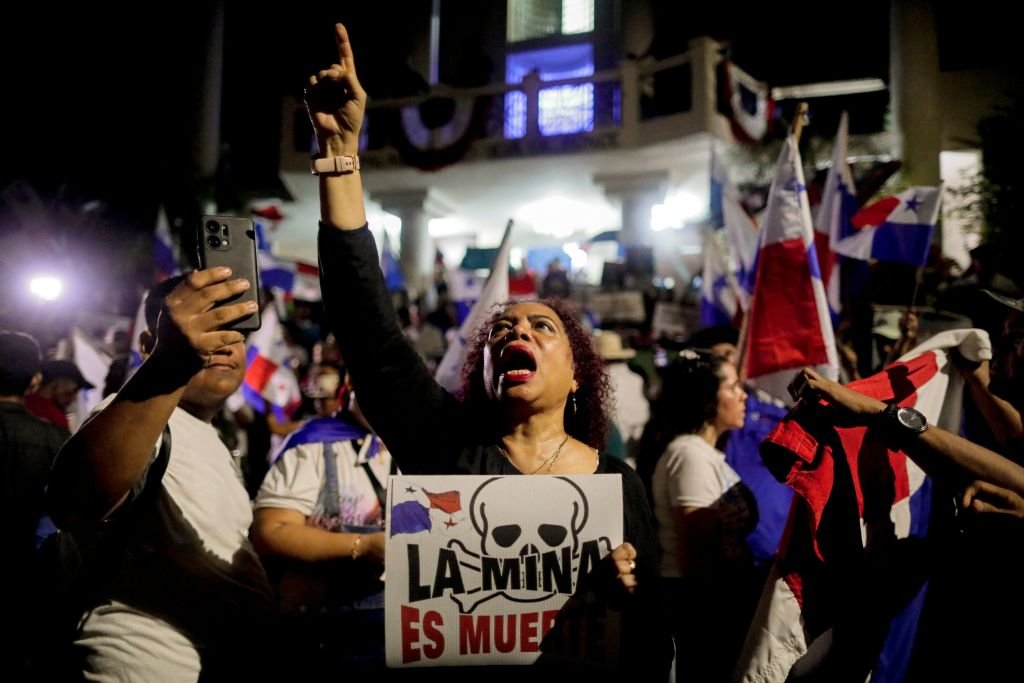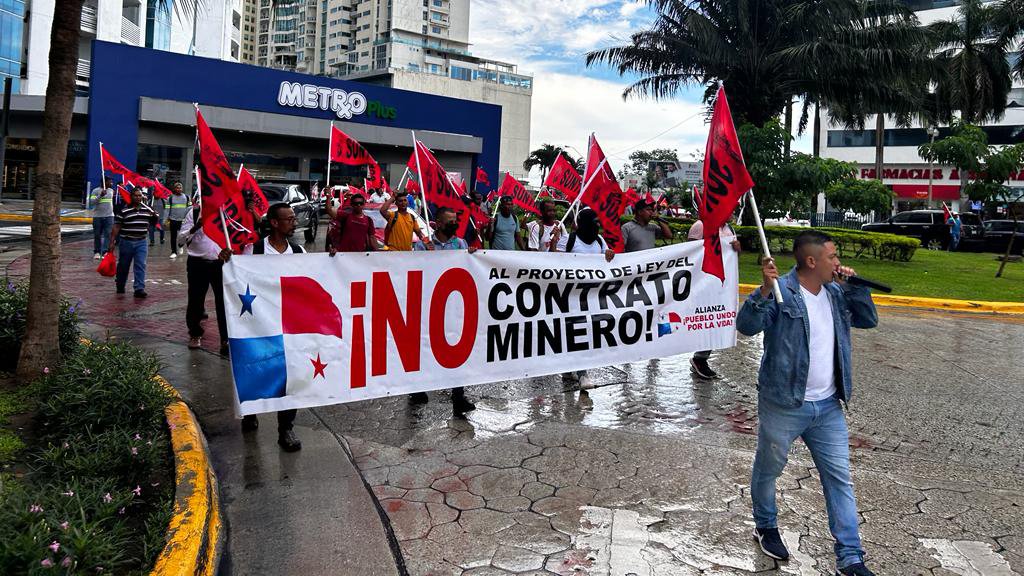For over a month, Panama has been gripped by widespread protests against First Quantum Minerals, a Canadian mining company that operates the country’s largest copper mine, Cobre Panama. Owned by Vancouver-based First Quantum through its subsidiary, Minera Panama, the mine has become a flashpoint for a larger national debate about economic justice, environmental degradation, and the rights of ordinary Panamanians in the face of foreign corporate interests.
Cobre Panama, located in the Donso district of Colon Province, stands as the single largest private investment in Panamanian history. The open-pit copper mine contributes to 5 percent of the country’s GDP and 75 percent of its export earnings—figures frequently cited by First Quantum as proof of the mine’s economic significance. Yet, as public discontent grows, two critical questions persist: If the mine generates so much wealth, why do Panamanians see so little of the profits? And, is the wealth worth the immense environmental risks it poses?
A History of Controversy
The origins of Cobre Panama’s controversy stretch back to 2013 when First Quantum acquired the mine’s contract from another Canadian company, Petaquilla Gold. This contract, however, has been at the center of legal battles since 1997 when Panama’s Supreme Court ruled it unconstitutional. Panama’s Environmental Advocacy Center (CIAM) had filed a lawsuit arguing that the mining concession was awarded without public bidding, community consultation, or a legitimate environmental impact study.
Despite the court ruling, First Quantum continued to resist government efforts to renegotiate the terms. By 2021, after a series of failed negotiations, the Panamanian government halted production at Cobre Panama, leading to diplomatic tensions between Panama and Canada. The Justin Trudeau administration responded by dispatching officials to ensure that First Quantum’s operations would continue, revealing the lengths to which the Canadian government is willing to go to protect the interests of its mining giants abroad.
On October 20, 2023, a new agreement was reached between Panama and First Quantum. The deal, which remains generous to the Canadian company, grants it rights to continue its operations for at least another 20 years. One particularly controversial clause allows the company to make offers on land it deems necessary for its operations. If the landowner declines, the Panamanian government is empowered to seize the land on First Quantum’s behalf—a provision that has sparked outrage given the region’s violent history of land dispossession related to mining activities.
Public Outcry and Mobilization
The passing of this new contract has triggered a wave of protests across Panama. Environmentalists, Indigenous groups, labor unions, and religious organizations have united to denounce both the financial terms of the agreement and the environmental impact of the open-pit mine.
Roads and ports have been blockaded, and major infrastructure has been disrupted, as protesters demand the immediate repeal of the contract. First Quantum, which has denounced the protests as “illegal and violent,” has seen its market value plummet by 40 percent. Meanwhile, the Panamanian government claims the protests are costing the state $80 million per day.

One of the key rallying cries of the movement, “Panama is worth more without mining,” reflects growing frustration with the environmental damage caused by Cobre Panama. Among the reported violations are deforestation on over 32,000 acres of land, the contamination of drinking water, and unfulfilled promises of reforestation. In April 2022, the “Panama Worth More Without Mining” movement released a damning report detailing over 200 serious breaches of environmental commitments by First Quantum, including illegal waste discharge into natural bodies of water. However, environmentalists are not the only ones protesting. Panama’s trade unions, students, and broader public, weary of the lack of transparency and exclusion from decision-making, have joined the demonstrations. They see the ongoing struggles over mining as part of a larger issue of national sovereignty and the rights of Panamanians to determine the future of their country’s natural resources.

A Violent Repression
The protests have been met with violence. On November 7, 2023, a driver shot two protesters at a roadblock, adding to the mounting tension. Panamanian police forces have used tear gas and pellet ammunition to disperse crowds, with numerous injuries reported. On November 16, fishermen attempting to block the entry of a ship into the Punta Rincon International Port, owned by First Quantum, were violently removed by the National Aeronaval Service.
The scale and intensity of these protests are not new to Panama. In 2011-2012, the country experienced a similar uprising when Indigenous communities demanded the annulment of mining concessions on their territory. The government of then-President Ricardo Martinelli responded with riot police, resulting in the deaths of protesters. A decade later, the struggle for Indigenous rights, environmental justice, and economic fairness remains at the heart of Panama’s broader social mobilization.
Canada’s Role and Geopolitical Implications
While Panama burns with discontent, the Canadian government has remained notably silent. Canada’s diplomatic apparatus has consistently backed First Quantum, offering material and diplomatic support to keep extractive operations running smoothly. This fealty to the mining sector is not unique to Panama. Across Central and Latin America, Canadian mining companies have been involved in numerous environmental, economic, and social conflicts, often with the backing of Ottawa.
The stakes for Canada extend beyond corporate profits. As part of its Critical Minerals Strategy, Canada aims to secure greater control over key resources—such as copper, produced at Cobre Panama—to reduce reliance on China. Copper is essential for the production of electric vehicles, a burgeoning industry that Canada hopes to lead in the coming decades. This geopolitical context highlights why the Trudeau government is so invested in ensuring First Quantum’s success, even at the cost of supporting repressive measures against Panamanian protesters.
The December 17 Referendum: A Decisive Moment
In response to the escalating crisis, Panamanian President Laurentino Cortizo has promised to hold a public referendum on December 17, 2023, to determine whether the contract with First Quantum should be repealed. This vote represents a critical moment for Panama’s democracy and its future. The Panama uprising is not just a challenge to a single mining project but to the broader forces of Canadian mining policy and Canada’s self-styled image as a champion of environmentalism, democracy, and human rights.
The outcome of this referendum could redefine Panama’s relationship with foreign extractive industries and set a precedent for other countries grappling with the environmental and economic consequences of mining. As Panama’s people continue to demand greater control over their resources and their future, the struggle against First Quantum has become a symbol of resistance against corporate exploitation and environmental destruction.

